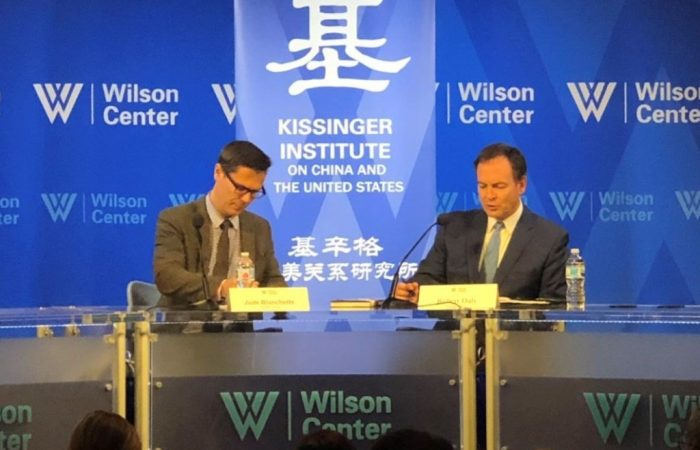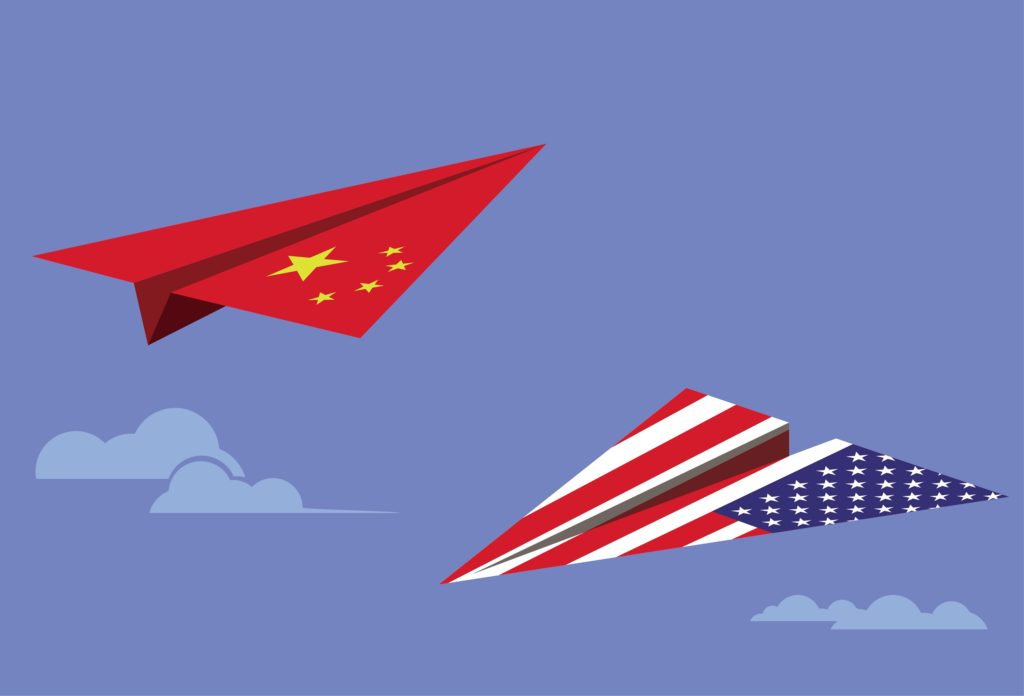On Monday, June 3, ICAS scholars attended an event at the Wilson Center’s Kissinger Institute. Jude Blanchette, Adjunct Fellow of the Asia-Pacific Security Program at the Center for a New American Security, introduced his new book, China’s New Red Guards. This book explores past and current trends on the “reemergence” of “a radical leftist movement”, Neo-Maoism, among the educated population. The discussion, moderated by Robert Daly, Director of the Kissinger Institute at the Wilson Center, investigated topics such as the government’s response to this “activist” movement, nationalism, the symbolism of Mao Zedong, and how this movement is attracting a younger, educated, tech-savvy generation. Although the Kissinger Institute normally focuses on U.S.-China relations, and less so on the domestic landscape of China itself, Robert Daly stressed that all too often, the complexity of what China is actually thinking is often missed. Therefore, it is critical to explore the current political discussions and ideologies that are thriving in China in order to better understand their viewpoints abroad.
Blanchette started the conversation by describing what the Neo-Maoism movement is and who comprises this movement. The movement emerged around 2002-2003, bearing a few key ideological and political grievances and aims. These included strong disenchantment with the extent and autonomy of the private sector’s power within state and society, the effort to renegotiate a better balance between control and openness in the market economy, and concern over China’s supposed trajectory away from its founding Communist principles. At a time of increased interaction and information exchange via the internet, Blanchette noted that this medium has actually strengthened the Neo-Maoist movement.
To understand this movement, Neo-Maoism can be seen more as a time marker in translating Mao’s ideologies and being critical of China’s current trajectory. With the Chinese political system going through a remarkable transformation in the past 2-3 years, Blanchette discussed how Neo-Maoists actually predicted these changes since Xi came into office in 2012. A question brought up by Robert Daly was, “Can Xi Jinping be considered a Neo-Maoist or a Maoist? Blanchette considers that Xi can be seen to be upholding the founding characteristics of the Chinese people and being accepting and proud of China’s Maoist heritage. However, there are fears that this movement could influence a “revolutionary tide” upon the country, which the Xi administration does not wish to see unleashed. Xi is seen as more concerned about maintaining stability. Therefore, although some of Xi’s past actions indicate he may share some elements with Neo-Maoism, he cannot be categorized as being one himself.
Another question asked was: Is the Neo-Maoist movement popular in China or should it be seen as a “niche sub-culture” emerging in the country? While Neo-Maoism has taken advantage of the spread of information that the internet provides and has adapted as a movement over time, it is not as popular a movement as it is vocal. As we look at China, post-1976, Neo-Maoism has been a cyclical political strain depending on the leader and issues facing the government at any given point of time. This can be seen in the 1980s, 1990s, and the early-2000s. Additionally, the symbol of Mao has been significant to this movement, as the government has had difficulty in “cracking down” on Neo-Maoism due to this symbolism. While the use of Mao’s symbolism was seen as an “older advocacy” tool, Neo-Maoists have used the internet to “digitize” their advocacy, especially at a time of increased U.S.-China tensions that have pushed the Xi administration to react.
The current status of the Neo-Maoist movement indicates that there is a generational shift underway and it is more dispersed in its reaction to government crackdowns on political movements such as this and others. Furthermore, there are many different factions and subgroups that exist within this movement, as there is no real central node or nodes of leadership. To answer the question as to what additional factors have triggered the government’s crackdown on Neo-Maoism, Blanchette explained that in part, it stems from its ties to Bo Xilai’s influence on the movement. Bo is still considered a central figure within the movement. Blanchette stated that during Bo Xilai’s time in office, he received the full support from the Neo-Maoist movement. However, after Bo Xilai’s removal from office, the movement had to adapt to the incoming Xi administration, which required any mention of Bo Xilai be “wiped clean” on an official level. Nevertheless, some of these websites still find subtle ways to make references to the disgraced politician.
In regard to U.S.-China relations, Blanchette noted that it is rapidly coming to a head. In the last six months, the Trump administration has pushed China to act on issues that were not necessarily on the forefront of the Xi administration’s radar. Blanchette additionally sees the Trump administration as continuously challenging the “status-quo” in China, but thereby also strengthening the reformist elements in China by raising the stakes. Nevertheless, it is hard to know what is happening behind-the-scenes within the Chinese political system. Blanchette emphasized, however, that though Neo-Maoists tend to be demonized by some in the U.S., it is important to keep in mind that this movement came about from a deep love of country and a concern as to where China is headed as a nation.




